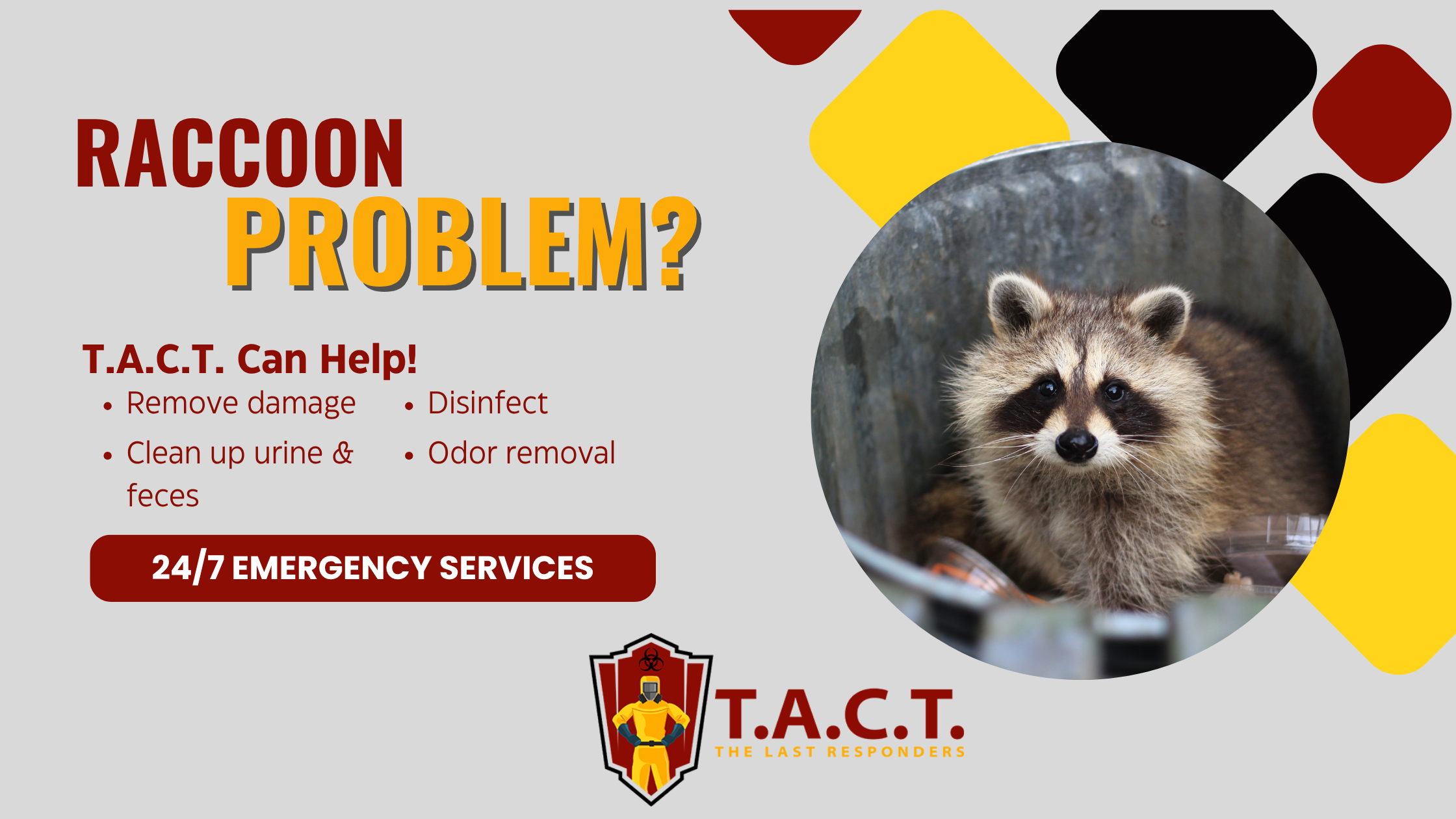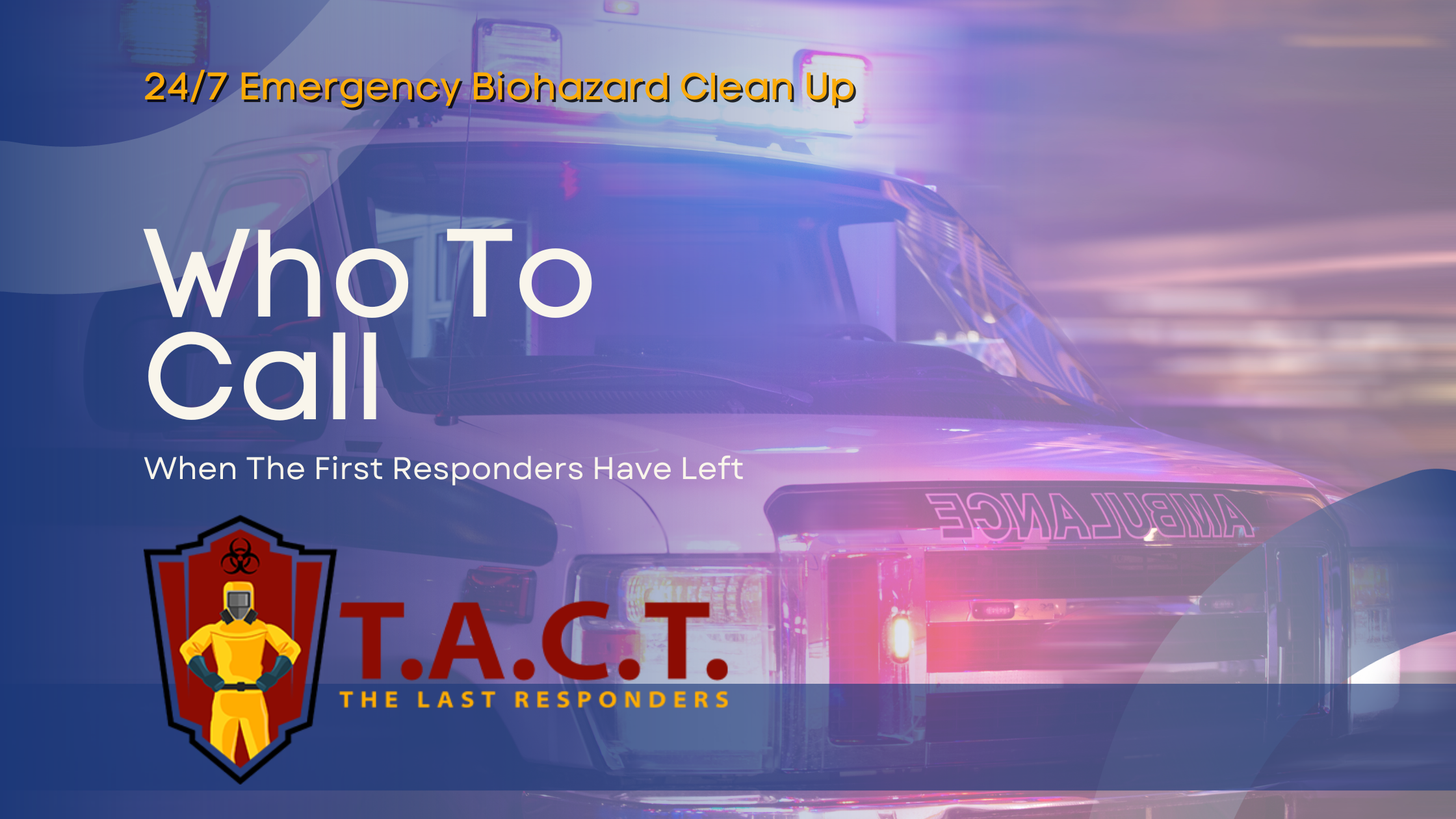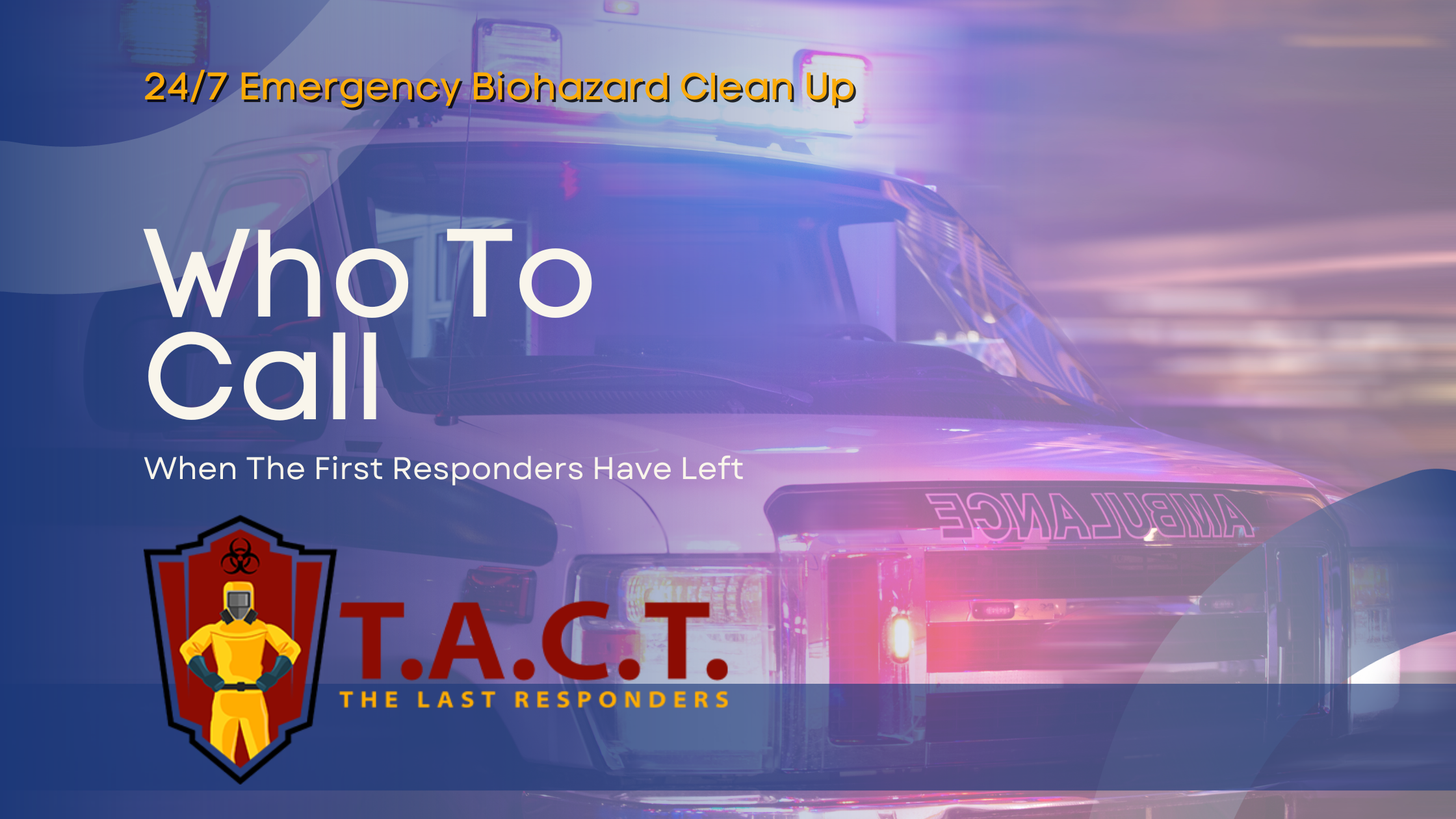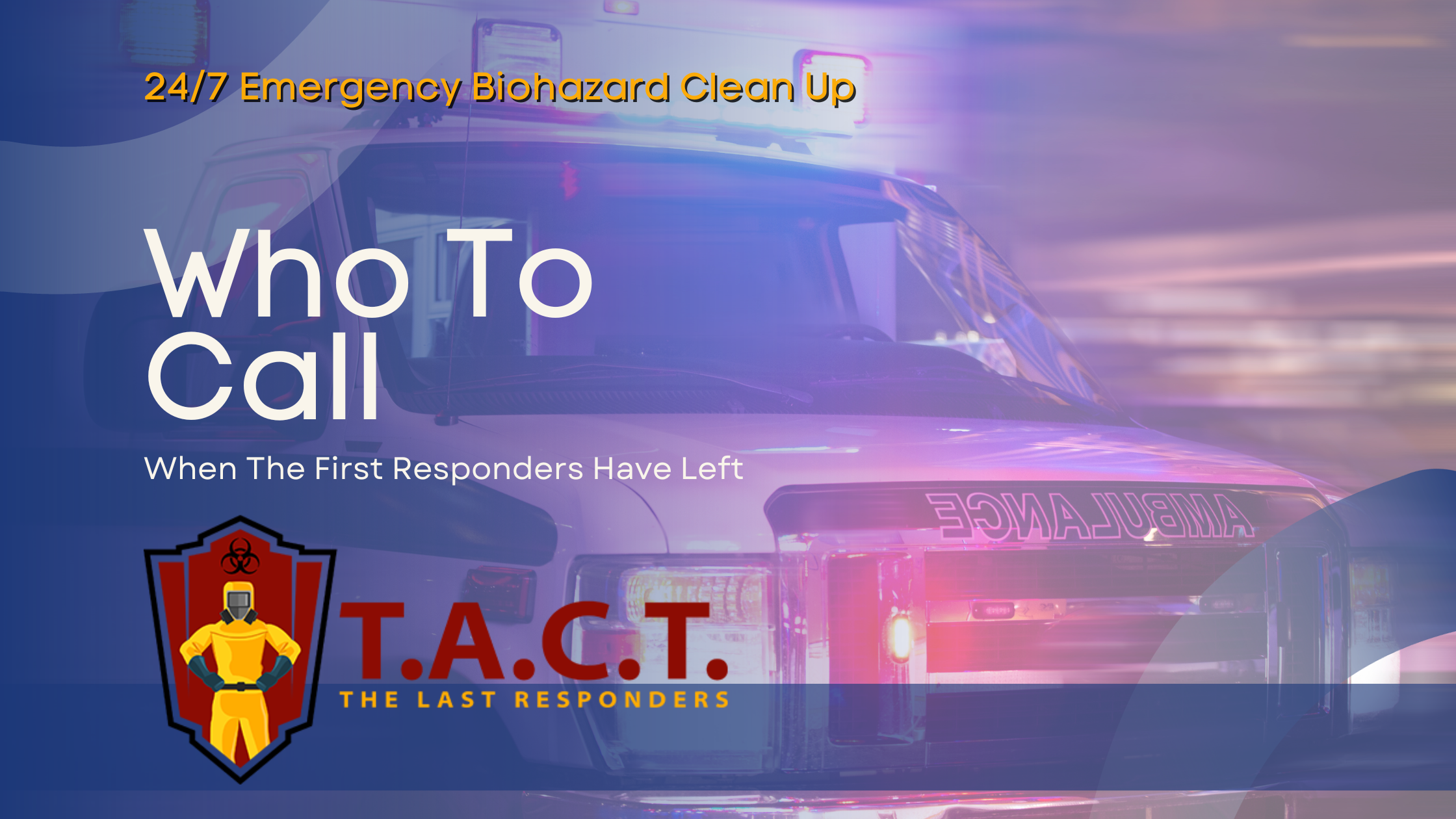When Raccoons Invade:

They’re cute. They’re clever. And if they’ve made their way into your attic, crawlspace, or walls—they’re causing far more harm than you think.
Raccoons are more than a nighttime nuisance. These masked intruders are incredibly destructive and can turn your home into a toxic environment without you even realizing it.
What Kind of Damage Can Raccoons Cause?
If you Google ‘damage raccoons can cause’, you will find countless horror stories of what these masked rodents have done to people’s homes, vehicles, and property in a short amount of time. Once inside, raccoons can:
- Tear apart insulation for nesting material
- Chew through wiring, creating fire hazards and cutting your power
- Rip ductwork and tear open walls
- Leave behind urine and feces that carry dangerous pathogens
- Bring parasites like fleas, ticks, and roundworms
Their droppings often contain raccoon roundworm (Baylisascaris procyonis), a dangerous parasite that can become airborne and pose a serious risk to humans and pets—especially children.
Signs of a Raccoon Infestation
If one night you start hearing sounds from the attic and wonder if you’ve got ghosts or something else. After you rule out ghosts as your culprit, the next step is to figure out what else it could be. Raccoons aren’t quiet houseguests and can make quite a racket. They can weigh up to 57lbs and grow over 2’ tall (or long), which is bigger than a lot of house pets. Here are some signs you’ve got raccoons and not ghosts:
- Scratching or thumping noises at night (especially in attics or walls)
- Droppings or strong ammonia-like odors
- Insulation pulled down or torn
- Entry holes in soffits, roof vents, or crawlspaces
- Unusual pet behavior (dogs and cats often detect intruders first)
How to Prevent a Raccoon Problem
The best way to keep your home from being damaged by raccoons is to not have them invade your property in the first place. Here are a few tips for deterring raccoons from entering your home:
- Secure trash cans with tight-fitting lids or animal-proof bins. They aren’t called trash pandas for nothing!
- Trim tree branches away from the roof. These agile little climbers will shimmy up a tree and onto your roof in a flash.
- Close off crawlspaces and vents with heavy-duty screens. If a raccoon can destroy something to gain entry, it will. There are a lot of options for rodent proof vent covers online for around $40.
- Inspect your roofline regularly for loose shingles or gaps
- Use motion-activated lights or sprinklers in areas where raccoons are active. Raccoons don’t like being sprayed with water. Pro-tip: Set up your go-pro to see this in action!
What To Do If They’ve Invaded Your Home
You might be tempted to evict your new tenants yourself, but it's not recommended. Raccoons can be aggressive, or may even have rabies. Raccoons, skunks, bats, and foxes are the most commonly reported animals with rabies. Here’s what to do:
- Do not try to remove raccoons yourself. They can be aggressive when cornered or protecting their young.
- Don’t poison any wildlife. Poison can affect a lot more animals than the ones you set out to get rid of.
- Call a licensed wildlife control specialist for humane removal.
- Contact a certified biohazard remediation team to clean up the contamination they leave behind.
Why Biohazard Cleanup from T.A.C.T. Is Essential
Raccoon waste is a serious health hazard, and should not be handled without the proper equipment. Incomplete or inadequate cleanup after a rodent invasion can actually attract more rodents to your property. Professional cleanup ensures the safe removal, disposal, disinfection, and sanitization of the affected areas. At T.A.C.T., our trained technicians:
- Use specialized equipment and PPE to safely remove waste and insulation
- Disinfect and deodorize contaminated areas
- Ensure proper containment and disposal of hazardous materials
- Help restore your property to a clean, safe, and livable condition
Attempting to clean up damage caused by these little trash pandas on your own could expose you and your family to dangerous bacteria and airborne toxins. Our team follows strict biohazard remediation protocols to eliminate health risks associated with raccoon waste—because your home should be a place of safety, not stress.
Don’t wait for the damage to escalate.
If you suspect a raccoon infestation or need professional cleanup, contact T.A.C.T. of North Atlanta at (404) 985-5461 to schedule an estimate.
About T.A.C.T. North Atlanta
T.A.C.T., Trauma and Casualty Team, are certified and insured biohazard remediation experts. We specialize in the safe and thorough cleanup of blood, bodily fluids, decomposition, rodent droppings, animal waste, mold, and hoarding. We also offer odor removal, and water and fire damage cleanup and repair throughout Northern Atlanta and the surrounding communities. We offer 24/7 emergency cleanup services, work with all insurance companies, and offer financing options.



